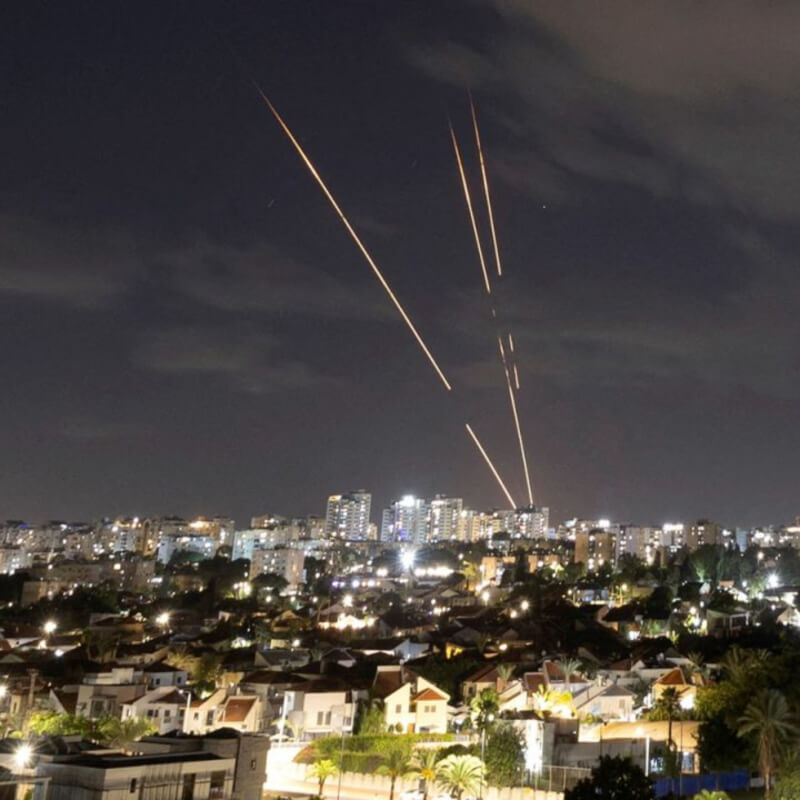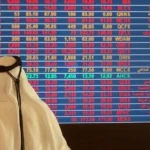On Tuesday, another regional player entered the “all-out war” that continues to ensue between Israel, Lebanon, and Gaza. As a response to the targeted killing of Hezbollah leader Hassan Nasrallah and others, Iran launched a missile attack on Israel. On Tuesday afternoon, hours before Iran’s aerial attack on Israel, the Iranian Mission stated that Tehran’s response had “been duly carried out.” It stressed that if Israel “dares to respond or commit further acts of malevolence, a subsequent and crushing response will ensue.”
The Israeli military estimated 180 “projectiles” were fired by Iran’s Islamic Revolutionary Guard Corps (IRGC) across the cities of Tel Aviv, Jerusalem, and Haifa. As a result of these overnight attacks, Jordan’s military put troops on “high alert to confront any attempts that threaten the security and stability of the kingdom.” In defense of Israel, the US Navy destroyers launched dozens of interceptors against Iranian missiles on Tuesday.
Geolocation analysis by CNN showed an Iranian missile striking the Nevatim air base in southern Israel. The Pentagon confirmed that “Iran’s attack against Israel today [1st October] was twice as large as Iran’s attack in April.”
Iran’s entry into the conflict between Hezbollah and Israel piqued the attention and subsequent reactions of international allies. US President Biden and Vice President Harris entered the Situation Room in the White House to closely monitor new developments after Iran attacked Israel. A National Security Council spokesperson said Biden has “directed the US military to aid Israel’s defense against Iranian attacks and shoot down missiles targeting Israel.” The US’ immediate defense aid to Israel echoed a preemptive statement from earlier in the day on Tuesday, where “it [US] believed that a ballistic missile attack on Israel [by Iran] was imminent after Israel launched a ground operation in southern Lebanon.”
This morning, President Biden convened a meeting with Vice President Harris and their national security team to discuss Iranian plans to imminently launch a significant ballistic missile attack against Israel. They reviewed the status of U.S. preparations to help Israel defend… pic.twitter.com/XtzGnv9MJm
— The White House (@WhiteHouse) October 1, 2024
Iranian President Masoud Pezeshkian warned Israel that its missile strike was “only a portion of [its] power.” Iran’s Supreme Leader Ayatollah Ali Khamenei followed suit, intimidating the aggressor in Hebrew that the “blows” against Israel would become “stronger and more painful.” When probed about Israel’s escalatory attacks in Lebanon in the last two weeks, State Department spokesperson Matthew Miller argued that Israel certainly “has done things to expand the conflict, but if you look at the actions they have taken, they were bringing terrorists to justice.”
Danny Danon, Israel’s ambassador to the United Nations, called for an emergency session of the UN Security Council after Iran’s missile attack on Tuesday. Danon told reporters at the UN, “We [Israel] will act. Iran will soon feel the consequences of their actions. The response will be painful.” Israeli Prime Minister Benjamin Netanyahu reassured Israelis that Iran “will pay” for Tuesday’s attack on Israel’s capital city.
Prime Minister Benjamin Netanyahu at the Start of the Security Cabinet Meeting:
“This evening, Iran made a big mistake – and it will pay for it.” pic.twitter.com/D7XYpDmiuJ
— Prime Minister of Israel (@IsraeliPM) October 1, 2024
On Tuesday night, Iranian officials also alerted aircraft that a “near conflict zone” lies in its western and southern airspace, specifically near Iraq, Kuwait, and Turkey. This warning is expected to compromise air travel across Europe and Asia due to the significant number of airlines headquartered in Persian Gulf countries.
The Israel Defense Forces (IDF) reported one Palestinian death in Jericho and several injuries from shrapnel in Tel Avia as a result of Iran’s overnight missile attack. In the last 24 hours, the Lebanese health ministry reported an additional 55 deaths and 156 casualties from Israeli airstrikes that continue to hit Lebanon.






